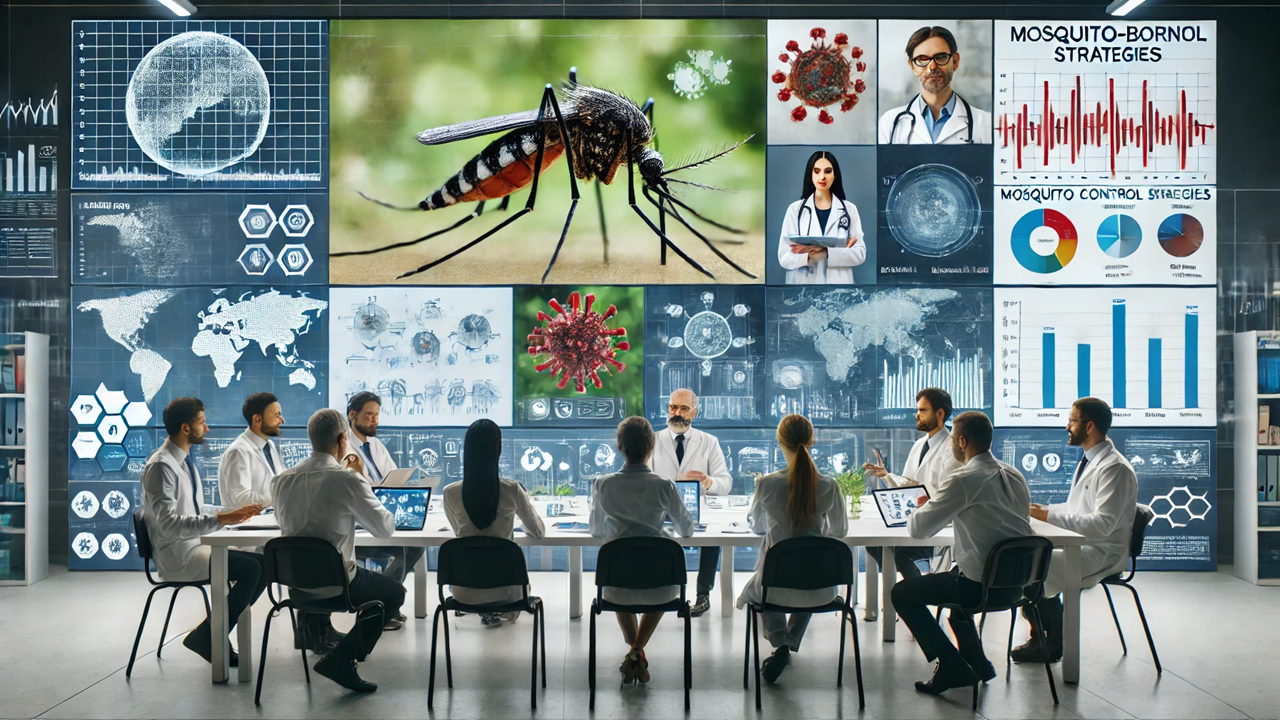New Frontiers in Vector Control: WHO VCAG Meeting Reviews Promising Innovations
The 20th meeting of the WHO Vector Control Advisory Group (VCAG) assessed innovative vector control tools, including spatial repellents, topical repellents, and the sterilization of male mosquitoes. The meeting underscored the importance of comprehensive trials and rigorous data to validate these interventions' public health value.

The World Health Organization's Vector Control Advisory Group (VCAG) held its 20th meeting virtually from March 25-28, 2024. This meeting was pivotal in assessing the public health value of three promising vector control interventions: spatial repellents, topical repellents, and the sterilization of male mosquitoes. The discussions and outcomes from this meeting could significantly influence future strategies in combating vector-borne diseases like malaria and dengue.
Spatial Repellents: A New Line of Defense
One of the key interventions reviewed was the transfluthrin passive emanator, a spatial repellent developed by SC Johnson in collaboration with the University of Notre Dame. This product, Mosquito Shield™, uses a transfluthrin-impregnated plastic sheet to release the active ingredient indoors for up to 28 days. The repellent targets various mosquito species, including Anopheles, Aedes, and Culex, reducing their host-seeking and biting behavior.
The trials conducted in Indonesia, Kenya, and Peru showed promising results. For instance, the trial in Kenya demonstrated a statistically significant reduction in first-time malaria infections, suggesting that the spatial repellent protected what was achieved with long-lasting insecticidal nets (LLINs) alone. However, challenges remain in conclusively linking the entomological data to epidemiological outcomes, a crucial step for WHO validation.
Topical Repellents: A Closer Look
Topical repellents have long been used to protect individuals from mosquito bites, but their effectiveness at the community level remains under scrutiny. The NOMO Foundation presented their NOMO insect repellent, a non-toxic lotion combining p-menthan-3,8-diol and lemongrass oil. This product claims to offer 8-10 hours of protection against mosquitoes.
The NOMO Foundation's trials in northern and eastern Ghana faced challenges, particularly in adherence and study design. The VCAG noted that the trials lacked rigorous randomization and adequate statistical power, limiting their ability to demonstrate a clear epidemiological impact. Despite these challenges, the VCAG encouraged the NOMO Foundation to continue refining its trial designs and seek additional expertise to generate high-quality data.
Sterilizing Male Mosquitoes: A Novel Approach
Forrest Innovations introduced a unique intervention involving the release of sterile male Aedes aegypti mosquitoes. These males are rendered infertile through treatment with double-stranded RNA and thiotepa, aiming to reduce the population of dengue-transmitting mosquitoes through repeated releases.
The trials conducted in Brazil showed significant reductions in mosquito populations and dengue cases in the intervention areas. However, the VCAG highlighted several limitations, including the lack of randomization and the reliance on passively collected health data. The group stressed the need for trials in different geographical settings and more rigorous study designs to validate the public health impact of this intervention.
Moving Forward: The Road Ahead
The VCAG's 20th meeting underscored the importance of innovative vector control tools in the fight against vector-borne diseases. While the reviewed interventions show promise, rigorous trials and comprehensive data are essential to validate their effectiveness and guide public health recommendations.
Dr. Ibrahima Socé Fall, Director of the Global Neglected Tropical Diseases Programme, emphasized the need for a comprehensive research and development blueprint to accelerate the control, elimination, and eradication of these diseases. The VCAG's role in evaluating new tools is crucial, and continued collaboration and innovation are vital to achieving these goals.
The next VCAG meeting is scheduled for October 2024 in Geneva, Switzerland, where further updates and new submissions will be reviewed.
- FIRST PUBLISHED IN:
- Devdiscourse
ALSO READ
Karnataka CM Siddaramiah directs officials to ensure availability of treatment, medicines amid surge in Dengue cases
Karnataka CM Intensifies Efforts to Combat Dengue Spread
Dengue Alarms Surge as U.S. Health Officials Warn of Growing Threat
Secure Your Health This Monsoon with Affordable Dengue Cover by Bajaj Markets
Fighting Dengue: WHO’s Toolkit for Community Readiness and Response










